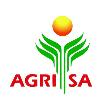AGRI SA's RESPONSE TO FINDINGS OF HUMAN RIGHTS WATCH ON "Human Rights Conditions in South Africa's Fruit and Wine Industries"
"Agri SA rejects the Human Rights Watch report on "Human Rights Conditions in South Africa's Fruit and Wine Industries" as being one-sided, malicious, unfair and highly irresponsible (see here - PDF). Agri SA questions the research methodology and therefore the credibility of the relevant findings," said Johannes Möller, president of Agri SA.
It should be noted that all deciduous fruit export farms, which were the focus of the Human Rights Watch investigation, are third party accredited for GlobalGap (good agricultural practices) and Ethical Trade certified as required by the international retail trade. It is therefore highly unlikely that the allegations as contained in the report could be a true reflection of prevailing circumstances on farms in the Western Cape.
Furthermore, Agri SA and its affiliates subscribe to national legislation and international norms on labour standards and require from its farmer members to do so as well, with due regard to the valued contributions farm workers' to the success of the farming industry and the need to treat them accordingly. Where real problems does exist, Agri SA and its affiliates are committed to assist in finding solutions. Agri SA will also not protect any farmer who is guilty of human rights abuses or serious breaches of the law and demands that due legal process should be followed.
Agri SA questions the adequacy and composition of the research sample of 260 people. Of these, 85 were apparently farm workers, 32 former farm workers and 16 were farm dwellers. How can such a small, and probably carefully selected sample ever be used to describe the situation of 121 000 farm workers", asked Möller.
Only 14 farm owners or representatives of farm owners were interviewed, representing less than 0.3 percent of the approximately 5 000 producers of the Western Cape. A wide spectrum of representatives from other organisations formed the balance of the sample. The report states that "In many cases interviews with farm workers or farm dwellers were arranged with the assistance of organizations that work with or provide services to those populations. Trade unions facilitated interviews with some of their members".
This resulted in a situation where 161 of those that were interviewed, were not directly involved in farming. Some of those organisations are also known to be antagonistic towards commercial farmers as well as organised agriculture and have in the past been unwilling to cooperate with the farmer organisations to address alleged transgressions collectively. Agri SA's input was largely ignored.
It is also apparent that statements made by farm workers, former farm workers and farm dwellers were not duly verified. In this respect the report indicates that: "Given the precautions that we took to ensure that no negative repercussions arose for interviewees, in almost all cases we interviewed either the farm owners/supervisors, or the farm workers/dwellers, from a farm, but not both." This places a question mark over the objectivity of the report and its condemning findings.
The report is also very negative about the farm access protocol, which Agri SA negotiated with various state departments. "Government departments, businesses and private households have the right to ensure their safety by applying access control measures. Farmers and farm workers - who are severely exposed to safety and security risks - surely have similar rights as others in our society.
There is therefore nothing sinister about farmers requiring an advance notification of an intended visit to or inspection of a farm. The Human Rights Watch also does not propose an alternative arrangement. Agri SA will therefore continue to advise its members to apply the protocol as a measure to advance the safety of those living on farms", said Möller.
"It is a potential dangerous situation for agriculture if perceptions are created by the outcomes of impaired research on which policy decisions could be based. Agri SA would therefore welcome objective and authoritative research into the labour conditions on farms as well as into the drivers of certain trends. For this reason Agri SA is consulting with the International Labour Organisation as independent body to facilitate such research," said Möller.
Statement issued by Mr Johannes Möller, President Agri SA, August 23 2011
Click here to sign up to receive our free daily headline email newsletter

